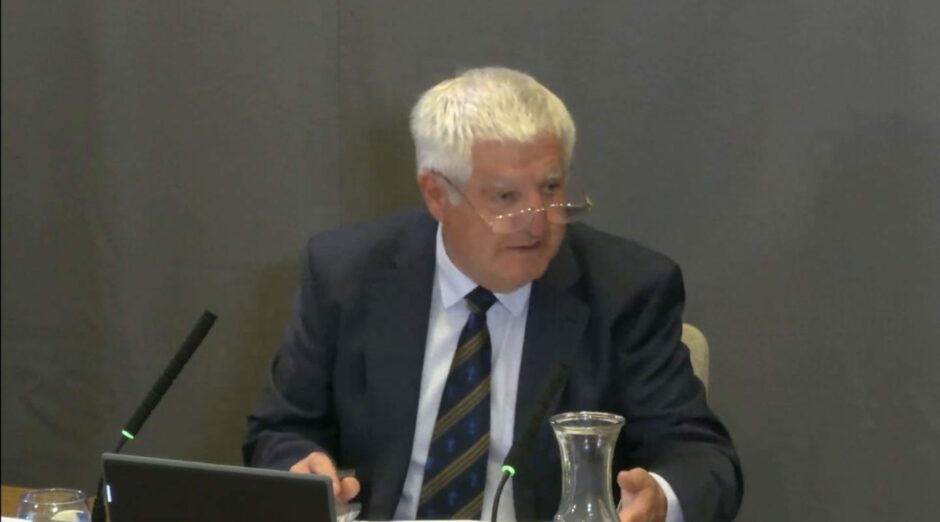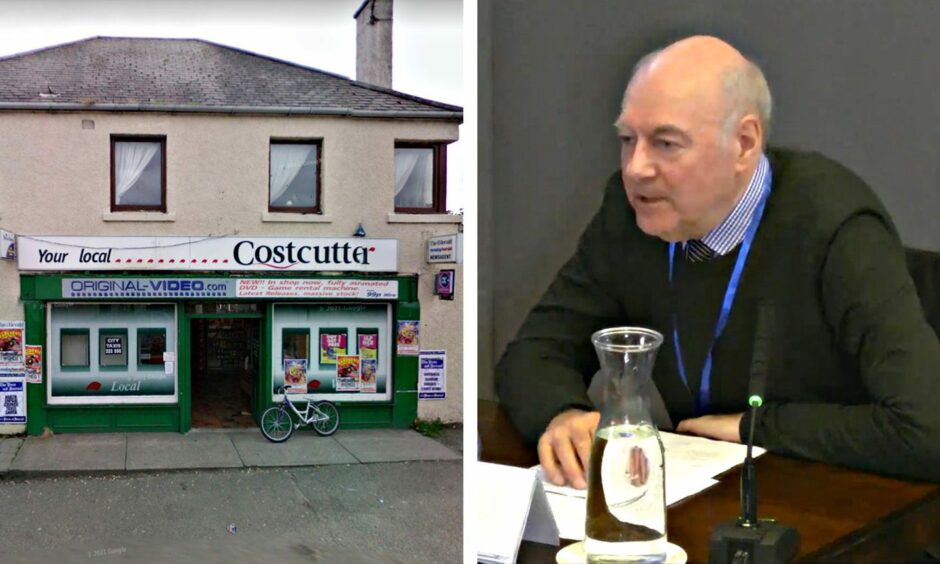A detective who locked up notorious wife-killer Nat Fraser has blamed poor quality investigations for the wrongful conviction of Post Office staff caught up in the Horizon scandal.
Faulty accounting software designed by Fujitsu falsely implicated up to 100 Scottish sub-postmasters and sub-postmistresses in alleged crimes of dishonesty.
Many more hundreds of employees elsewhere in the UK were also prosecuted for money missing from their branches’ tills – money they never pocketed.
On Tuesday, Scotland’s top law officer Lord Advocate Dorothy Bain KC, whose Crown Office prosecuted Scots for bogus allegations of embezzlements, admitted her officials were “repeatedly misled” by the Post Office’s claims about the reliability of its evidence.
In a statement to MSPs at Holyrood, she said the Post Office, which had handled its own prosecutions in England and Wales but not in Scotland, “repeatedly” gave “assurances, which were just not true”.
The day before, in a post on the social media platform LinkedIn, former Grampian Police Detective Superintendent Alan Smith, whose 1998 investigation into missing Elgin mum 33-year-old Arlene Fraser led to her husband Nat Fraser being jailed, said that he felt “appalled” by the scandal.
‘Blind faith in the Horizon technology led to a raft of miscarriages of justice’
“As a career investigator with 40+ years of criminal and industry experience, what personally and professionally intrigues me most is the scale of apparent investigative incompetence,” he explained.
“It appears there was blind faith in the Horizon technology data, which led to a raft of miscarriages of justice.”
Mr Smith, who was recently recorded for The Press and Journal’s new podcast series ‘Vanished: The Arlene Fraser Murder’, called for lessons to be learned from the widespread miscarriage of justice perpetrated by the Post Office.
He added: “Rule 101 of investigations is never to rely on a single source of evidence, no matter how compelling.
“This provides the basis for confident and robust decision-making and assures the crucial element of corroboration.”
‘Where was the investigative gut instinct?’
Mr Smith asked: “Where was the investigative gut instinct?” adding: “I’m trying to place myself in the position of the Post Office investigation team and find it impossible to imagine that at some point, gut instinct didn’t kick in.
“Driving away from having interviewed these model citizens, pillars of the community, and having accused them of horrendous criminality in the face of denial, surely some in the team must have questioned the integrity of the Horizon technology data.
“It was the classic single point of failure. The apparent financial discrepancies must have screamed at odds with the profiles and backgrounds of those decent people they were accusing, not to mention the very obvious question, ‘Why do we have such a sudden spike in postmasters and postmistresses turned criminals?'”
Public outrage after ITV drama based on the controversy
A public inquiry, led by retired high court judge Sir Wyn Williams, was launched in September 2020.
It will gather all the necessary evidence from key witnesses including previous and current sub-postmasters and sub-postmistresses, Post Office Ltd, UK Government Investment (UKGI), Fujitsu, the Department for Business and Trade (DBT).
Eventually, the inquiry will summarise the 20 years of failings that occurred between the Horizon IT system at the Post Office, which led to the suspension, and termination of sub-postmasters’ contracts, and their prosecutions and convictions.
The scandal – branded by many as the UK’s biggest-ever miscarriage of justice – recently inspired the television broadcast of an ITV drama based on the controversy.
The four-part ITV series Mr Bates vs The Post Office shed light on the suffering that sub-postmasters have endured for more than two decades.
“It is very true (to life),” he told The Press and Journal, adding: “My daughter was watching it and she couldn’t watch it to the end.
“The characters that they have got playing the parts are true to life.
“There are things in the programme that people didn’t understand, for instance, that the Post Office could prosecute you and they didn’t have to go to the police.
“I think that would have opened a lot of people’s eyes.”
In May 2022, 77-year-old Mr Worsfold gave evidence to the public inquiry.
He spoke of being sacked in 2002 after auditors claimed up to £3,000 was unaccounted for at his branch in Muirtown.
Mr Worsfold said the auditors’ investigation into his branch followed a £20,000 shortfall in the accounts the previous year.
He said: “You could only go back into the system for 40-odd days, so there was no way that I could go back and check in the system what had happened at that time.
“The Post Office told me to write it off in the accounts but they deducted the £20,000 from my wages on a monthly basis,” he added.
The witness was deprived of his £2,000-a-month salary while suspended following an audit in February 2002.
He estimated paying around £37,000 of his own money to plug gaps caused by Horizon’s faulty accounting figures.
Lord Advocate slates Post Office’s dishonest conduct
More than 700 post office staff around the country were wrongly convicted or accused of theft because of the faulty Fujitsu software.
Mr Worsfold spoke of an occasion when he was visited by two “security officers” whom he believed were employees of the Post Office.
He recalled: “They said that they had the same jurisdiction as the police and they cautioned me, but I don’t know on what authority they cautioned me, and that I was being charged with false accounting, theft, and fraud.
Public outrage at the ITV drama has increased pressure on politicians to act, prompting calls by MSPs for the Crown Office to reveal what it knew and when.
On Tuesday in Holyrood’s chamber, Lord Advocate Dorothy Bain KC told MSPs: “The relationship between a prosecution authority and an investigating agency must be based on absolute candour and trust.
“As an investigating agency, the Post Office must act fairly, and this includes an obligation to reveal to prosecutors all material which may be relevant to the issue of whether the accused is innocent or guilty.
“It is clear that the Post Office failed in its duty of revelation and as a result, some individuals were prosecuted when they should not have been.
“Where miscarriages of justice have happened, it is because prosecutors in Scotland accepted, as they were entitled to, evidence and explanations at face value from the Post Office.
“The consideration of any criminality in Scotland on the part of those responsible for the failures of the Post Office will require to wait until the public inquiry has concluded and the full scale of their actions is understood.”



